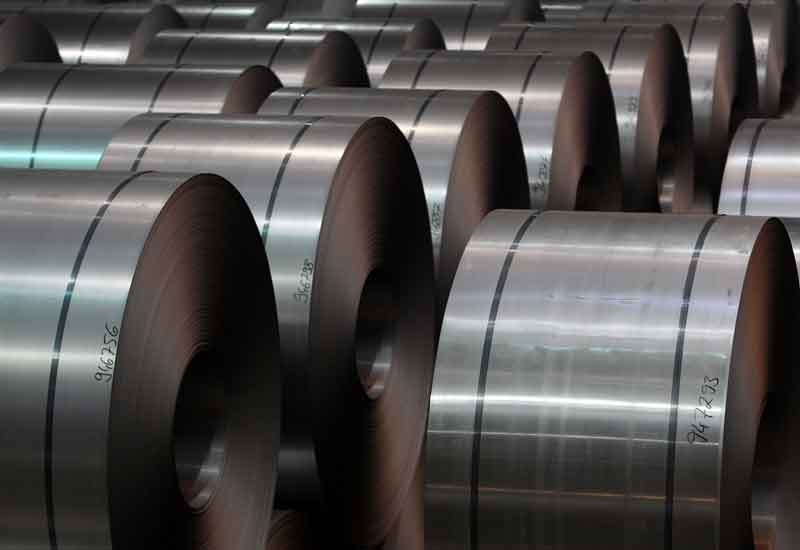Iran Gov’t to Implement New Steel Pricing Mechanism

EghtesadOnline: The government is making another foray to enforce pricing, as the so-called Competition Council has announced a new pricing mechanism for steel.
Based on average global prices and foreign exchange rates in Iran, the pricing method for less than 5-mm-thick hot-rolled coil, for instance, is meant to regulate a seemingly monopolized market.
Consequently, the base price of all HRC offered on Iran Mercantile Exchange is set to be determined by multiplying the average of Metal Bulletin’s CIS FOB Black Sea price for the last 15 days by the SANA rate, which is the daily average trade rate in the forex market.
HRC suppliers are mandated to sell at least 25% of their materials at IME and also communicate their supply schedule for each material to consumers a week before each quarter starts. The council must be made aware of any deviation in the plan within a maximum of one week. The producers addressed include Mobarakeh Steel Company, Ferro Gilan Complex and Ahwaz Rolling and Pipe Mills Company, Financial Tribune reported.
According to Mehr News Agency, a letter regarding the decision was penned by the head of the council, Reza Shiva, to Chairman of the Syndicate of Steel Pipe and Profile Manufacturers Amir Hossein Kaveh on Sunday before appearing in local news outlets.
The Competition Council is a government-backed body that monitors and, in some cases, sets prices of local products. The name has so far usually resonated in cases related to the auto sector.
The syndicate has championed the cause of downstream users, especially pipe producers dealing with inadequate supply of flat steel and slab for about two years now, claiming that the market is dominated by a few large quasi-privatized steelmakers that are able to manipulate supply and prices. Their extensive lobbying attempts got them through various governmental bodies, with the Competition Council being the latest.
Heeding the syndicate’s concerns, the letter indicates that Mobarakeh Steel Company’s HRC production accounts for 50% of total market capacity and 90% of actual production and supply. It emphasizes that the necessity of enforcing a new pricing mechanism is due to the fact that MSC has been levying a 20% import duty on thin flats to the base price offered at IME for the past two years, causing significant disparity between local and export prices.
“Flat steel price must be discovered at IME based on supply and demand mechanisms. However, with a few quasi-privatized suppliers with a meager supply and thousands of buyers, there is no balance between supply and demand. This deprives users of any certainty about prices,” Kaveh told IRIB’s Radio Eqtesad in an interview.
He emphasized that local prices have grown beyond global quotes while there has been no significant development in the domestic market.
“Unreasonable prices, alongside lack of supply, impede the steel production chain and creation of value-added materials,” he said.
On Monday, MSC offered 34,100 and 12,100 tons of type B and C HRC futures at IME at the base prices of 21,978 and 21,357 rials, while demand stood at 68,530 and 49,830 tons respectively.
MSC, alongside its subsidiary Saba Steel Complex, produced a total of 1.87 million tons of HRC during the first four months of the current fiscal year (started March 21), registering a 3% drop in output year-on-year.
> Automakers to Benefit
The impact of the council’s decision will also be felt in other downstream sectors, including the automotive sector.
Iranian car manufacturers are a regular user of flat steel. Lower prices will benefit them, especially now that they have bolstered production and recently been given the go-ahead to boost prices.
According to Iran Vehicle Manufacturers Association, 306,545 cars, pickup trucks and heavy duty vehicles were produced during the first quarter of the current fiscal year. The industry registered a 15.2% YOY growth during the three-month period.
Local companies manufactured 290,432 vehicles, an 18.9% YOY growth while production of pickups decreased 32% compared with the same period of last year, reaching 12,925.
Back in July 30, the Competition Council gave permission to Iran’s two main automakers, Iran Khodro and SAIPA, to increase the prices of several models, including Pride and Tiba in addition to Samand and several models of Peugeot.
The ruling allows SAIPA to increase the prices of Pride and Tiba by up to 1.5% and permits IKCO to charge 2.5% to 3% more for its Samand and Peugeot models.
Following the council's authorization, 1.5 million rials ($40) will be added to the price of Tiba and Pride, which are currently sold for 250 million rials ($6650); Peugeot and Samand models will increase by 4 million rials ($107).
As raw material prices are slated to drop, Iranian automakers may be the primary yet unlikely beneficiary of this development.


